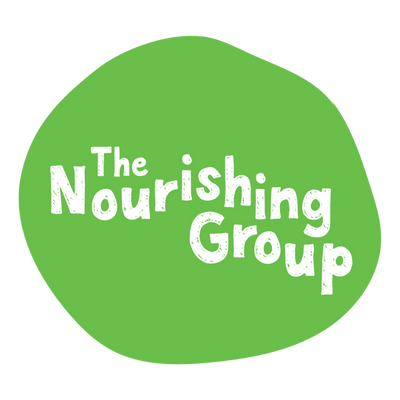Order CUT-OFF 11.45pm Tuesdays (Sydney time)! Second delivery day added for metro locations.
$66 MINIMUM APPLIES. FREE SHIPPING OVER $175.
NOW SHIPPING NATIONALLY!
Optimising Bub’s Nutrient Absorption: Vitamin C, Iron, and Calcium Essentials
Iron is a fundamental nutrient in your baby's journey of growth and development, particularly as they reach the pivotal age of six months, when their iron reserves start to dwindle. However, here's the twist: not all iron is created equal (as if you didn't already have enough on your plate). Don't worry, it’s not too complex, we'll keep it simple and show you how to optimise iron absorption to ensure bub receives the maximum nutritional benefit from their meals.
Iron Absorption Explained
Iron comes in two distinct forms: haeme and non-haeme. Haeme iron is derived from animal sources such as meat, while non-haeme iron is found in plant-based foods like beans and lentils. Interestingly, iron from plant sources is not as readily absorbed by your baby's body as its counterpart from animal products. This variation underscores the importance of strategic nutrient pairing to enhance absorption.
The Role of Vitamin C
Enter vitamin C, renowned for its immune-boosting properties. Yet, its significance extends beyond immune function. When combined with plant-based iron sources like lentils, beans, or spinach, vitamin C performs a remarkable feat: it transforms non-haeme iron into a form that the body can readily absorb. This synergistic relationship between vitamin C and iron underscores the importance of incorporating a diverse array of nutrient rich foods into your baby's diet.
Caution with Calcium
While calcium is essential for bone health and development, it presents a potential obstacle to iron absorption. Both animal and plant-based iron absorption can be compromised in the presence of calcium. Ideally, calcium rich foods should be served separately from iron rich ones. However, practical constraints may necessitate simultaneous consumption of these nutrients e.g lasagna. In such cases, moderation is key. Opt for small quantities of calcium rich foods, such as a sprinkle of cheese, to mitigate any adverse effects on iron absorption. Save that big glass of milk for a separate meal.
Nutrient Pairing Bub
To navigate this nutritional maze effectively, let's explore some examples of nutrient rich foods for your baby:
Iron Rich Plant Based Foods:
- Eggs
- Lentils
- Beans
- Spinach
- Almonds
- Cashews
- Weet-Bix
- Fortified rice cereal
- Fortified bread
Vitamin C-Rich Foods:
- Sweet potato
- Capsicum
- Broccoli
- Brussels sprouts
- Potatoes
- Citrus fruits
- Berries
- Kiwi fruit
- Rock melon
By strategically pairing these iron rich plant based foods with vitamin C rich counterparts, you can optimise iron absorption and promote your baby's overall health and wellbeing. Whether you choose to serve these foods in their whole form for baby-led weaning (cooked and chopped appropriately) or blend them into purees for a hassle free feeding experience, rest assured that you're providing your baby with a solid nutritional foundation.
In Conclusion
As your baby embarks on their journey of solid food exploration, remember that every child is unique. Pay attention to their individual cues and preferences, and don't hesitate to seek guidance from a pediatric dietitian or healthcare provider if you have any concerns about your baby's nutrient intake or growth. Follow us for more tips and insights on starting solids and supporting your baby's nutritional needs.
+Categories
- allergen
- allergen introduction
- baby development
- baby nutrition
- baby products
- breastfeeding
- calcium
- child nutrition
- Chocolate
- choking
- constipation
- diarrhoea
- easter
- feeding
- food allergy
- frozen baby food
- gagging
- health
- healthy eating
- infant nutrition
- iron
- iron defeciency
- kids health
- legume puree
- lifestyle
- meal portions
- mum
- mum nutrition
- nourishing bubs
- nutrition
- Nutrition labels
- paediatric nutrition
- parenting
- pediatric nutrition
- pregnancy
- Protein Purees
- puree pouch
- reading baby food labels
- Sometimes foods
- Starting Solids
- summer
- toddler nutrition
- vitamin B12
- vitamin deficiency
- vitamins
+Recent Articles
- Can too much Vitamin A be harmful for bub? An easy guide to keep bub safe, happy and thriving.
- Are bub and I getting enough Vitamin B12?: A simple and easy guide with everything you need to know
- Boosting your little one's health with Zinc: What you must know
- The Ultimate Guide to Introducing Allergens: Tips for New Parents
- How to Read Baby Food Labels: A Parent’s Guide to Nutrition Panels and Ingredients Lists
- The Most Important Nutrients From Bump to Bub: A Guide to Pregnancy, Breastfeeding, Starting Solids, and Toddler Nutrition
- Can I Give My Baby Easter Eggs and Hot Cross Buns? The Ultimate Guide for Parents
- When to Offer Solids Before Milk Feeds: A Guide for Parents
- Introducing Solids: A Guide to Starting Your Baby on Solid Foods
- 5 Things You’re Doing That Could Be Encouraging Fussy Eating
Sign up for 10% OFF your first order. Plus we'll keep you up to date about new product launches, stockist alerts, new recipes & more...
© 2025 Nourishing Bubs.
Developed by Treble Digital




